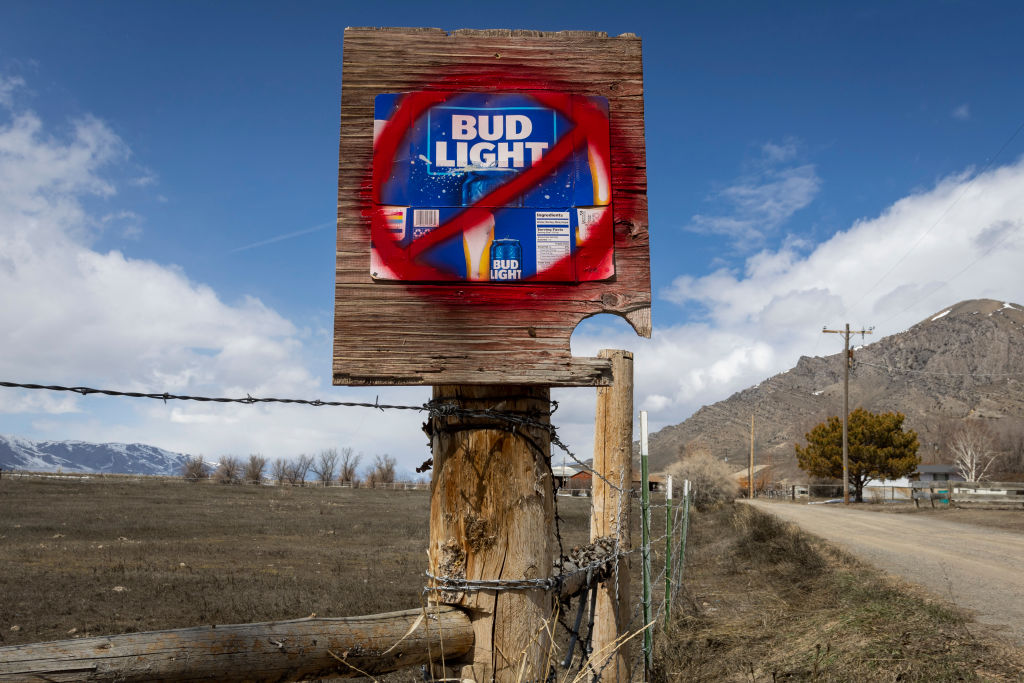In recent years, wokeness has become part of the political lexicon. It originally referred to an awakening over racial injustices. Today it covers a wide range of controversial progressive cultural, social, and economic issues. It intermingles with the leftwing concepts of political correctness and identity politics. Wokeness is no longer about basic personal freedom and justice – but rather a partisan and biased leftwing political agenda.
Woke has come to represent the entire range of radical leftwing programs – including defunding police, abolishing Immigration Customs Enforcement (ICE), general immigration policies, softness on crime, and even the Green New Deal legislation’s attack on oil. It is mostly associated with social and cultural issues involving education, gender, and sex. However, wokeness also involves international relations – most notably the Middle East’s Israel/Palestinian conflict.
That may explain why wokeness is becoming increasingly unpopular with the American people.
The backlash against woke policies and beliefs is evident throughout the political landscape. Wokeness in education – critical race theory, gender fluidity education, anti-American Exceptionalism, and the introduction of salacious adult reading materials – has resulted in a wave of anti-woke Republicans being elected to school boards. In some states – such as Florida — the anti-woke movement has resulted in statewide legislation. Florida’s popular Governor, Ron DeSantis, has declared the Sunshine State is where “woke goes to die.”
In Virginia, Republican Glenn Youngkin won an upset gubernatorial victory over Democrat Terry McAuliffe by running on an anti-woke platform. Democrats who were once calling for police defunding have grown silent in the face of the backlash – and in some cases, have claimed to never have favored the defunding proposals even as Democrats were actually enacting defunding legislation. The traditionally progressive voters of Minneapolis defeated a referendum that would have drastically defunded the local police – and that was in the wake of the George Floyd murder.
Even more surprising was the election of a Republican prosecutor in uber-liberal Seattle. My own son in Seattle – who leans to the progressive side – voted for a Republican prosecutor for the first time. It was in response to the local prosecutors’ going easy on criminals and the growing homeless crisis, In terms of election politics, woke is a wanning concept – but the anti-woke backlash is impacting on more than the politicians.
Businesses that have ventured into the controversial woke issues have been the subject of state legislative actions and have suffered from organic boycotts.
Most state legislatures are enacting or considering laws that push back against woke business policies. The Texas State Legislature has proposed laws that ban state investment in companies with anti-Israel or green anti-oil policies. Missouri Republican Senator Josh Hawley has introduced legislation to ban acquisition and mergers by $100 billion-dollar social media companies – such as Amazon, Facebook and Google. His concern was not merely the size of the enterprises, but their biased censorship based on the support of woke corporate policies. The Georgia legislature took away a tax break from Delta Airlines after the company went woke in opposition to an election reform law.
Nowhere has the power of the anti-woke backlash been more evident than in the reaction of consumers. Anti-woke folks have voted with their dollars. Disney suffered measurable economic losses in sales and value after going all in on wokeness – notwithstanding the ill-advised fight over Disney’s autonomous zone agreement.
Anheuser Bush got kicked in the can (pun intended) when they attempted to reach the tiny transgender market with transgender influencer Dylan Mulvaney’s image on Bud-Light. Sales plunged, and the company lost $19 billion in market value. The company has since dropped the Mulvaney ad campaign and produced a number of American values macho advertisements.
When Target expanded its gay product “pride” merchandise line to include transgender and gender fluidity promotional products – including childrenswear – and what could be described as anti-Christian themes, the company lost more than $14 billion in market value. Some of the products were designed by a transgender artist known for his satanic and anti-religious themes. Target has since removed the more offensive products.
Gillette lost billions of dollars after running an advertisement designed to promote their female line by lecturing men on “toxic masculinity.” It was a close shave for the company, and they dropped the social commentary ads. Starbucks was pushed into banning workers from wearing Black Lives Matter t-shirts.
Business practices have resulted in a variety of lawsuits. Coca-Cola was sued by stockholders after introducing a woke diversity program in which employees had to be “less white.” Justin Danhof, director of the Free Enterprise Project of the National Center for Public Policy Research, has filed dozens of shareholder resolutions against companies with woke policies. The pushback against corporations has promoted the slogan “Go woke and go broke.”
The aforementioned are only a sprinkling of the grassroots actions in opposition to woke policies, programs, and legislation. Rather than ebbing, it appears that they are increasing and getting more effective.
Contrary to the claims of those on the left, the anti-woke pushback is not anti-gay, anti-black, or anti-women — but rather the extreme demands of the most radical elements within those communities. Woke appears to have gone too far for the average American. And the people are pushing back.
So, there ‘tis.
